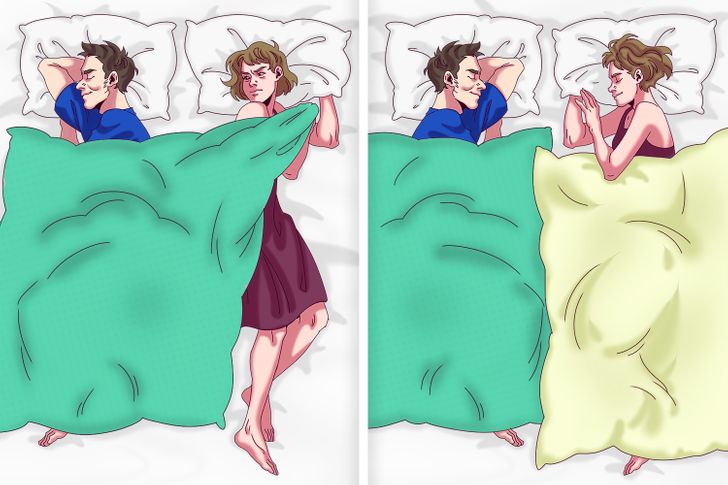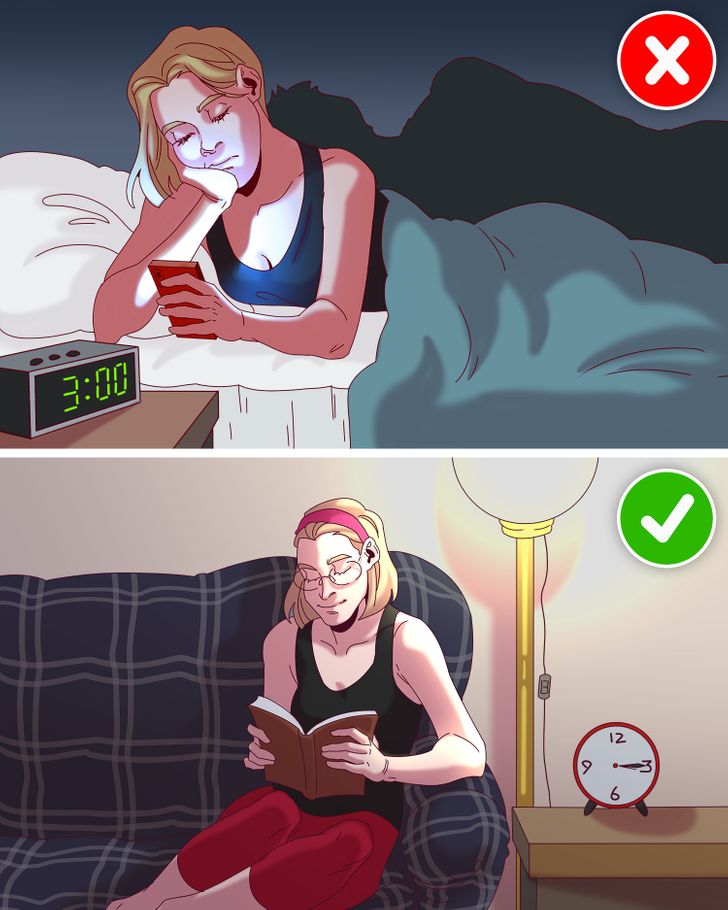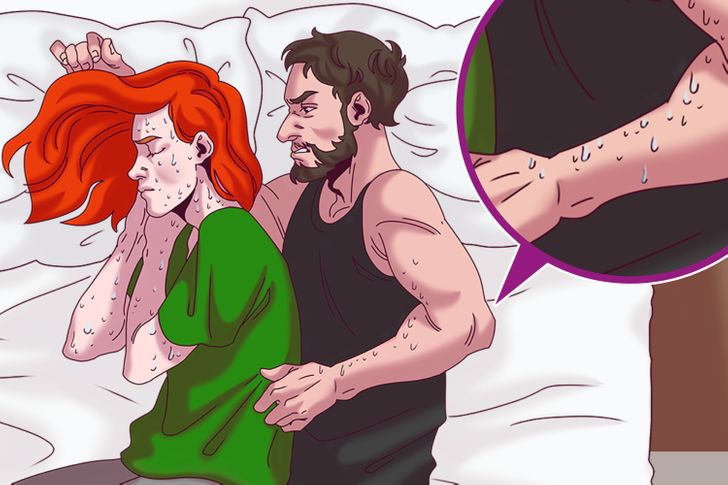Sleeping with another person not only gives us feelings of security and protection, togetherness, and closeness, but it also brings considerable health benefits, such as lowering cortisol levels or reducing inflammation. It’s a nice addition to the experience, all things considered.
However, some people just seem incompatible with sleep. Opposite sleep cycles, snoring, monotony, and more are just roadblocks that lead to low cortisol levels. But let’s not give up, there are many compromises we can make in terms of bedding.
It always hurts us, to see relationships ruined by minor problems. So, we’ve rounded up some common bedtime issues that affect couples and we want to share them with you.
Blanket Tug-of-war

Some sleepers just don’t like sharing blankets. You are going to sleep with your 50/50 ratio, but the next thing you know is that it is freezing cold, you are curled up in a corner and shivering.
There is no blanket left for you! It is useless to try to remove it, as the monotony will happen again.
Despite the comical nature of the widespread controversy, it can actually strengthen your relationship and have a negative impact on the quality of your sleep.
Solution:
A bigger bed and separate blankets will solve the problem! That way, both of you can have your own sleeping materials, without the need to “steal” each other.
Ask if your partner is comfortable at night; Maybe it’s cold, that’s why it monopolizes the blankets so much.
Snoring

Imagine that you are snoozing, feeling warm and comfortable in your bed, and suddenly a locomotive horn sounds right above your ear. No, it is not an emergency alert, it is just that your loved one is not pushing air through their nose properly.
As a single incident, snoring is not a big problem, but at worst, it can be a symptom of a bigger problem. This sabotages bedtime for both parties, leaving the snorer with headaches, tiredness, and other evidence of poor sleep the next day.
Change your sleeping position, as snoring occurs more often when you sleep on your back. Raising your head can also help. Lie down before the snorer and wear earplugs. Keep some distance between you if necessary.
Lifestyle changes such as losing weight, sticking to a sleep routine, and avoiding alcohol, smoking, and certain medications can help. If snoring continues to occur frequently, it is best to consult a doctor.
Different Temperature Preferences

66 ° F to 69 ° F (19 ° C to 20.5 ° C) is considered the ideal sleeping temperature for most people, but it can vary slightly at times. You may find that your partner’s preferred “sleep settings” are different from yours.
With an uncomfortable room temperature, it takes longer to fall asleep. It’s also harder to fall asleep, so you may have trouble staying asleep.
Solution:
Get separate bedding to better meet the needs of each of you. It’s hard to sleep when you’re overheated, so it’s easier for the hotter person to commit. If your partner’s preferred temperature is lower than yours, opt for warmer blankets and pajamas.
Nighttime Wake-ups

Waking up spontaneously in the middle of the night is not uncommon. It can be a sign of insomnia or the result of stress, use of electronic devices, a bad sleeping environment, or just a unique sleep schedule.
When you wake up and can’t go back to sleep after 15 or 20 minutes, there is no point staying here. And if it happens frequently, the first thing to remember is to be courteous to your partner.
Get out of bed, go to a separate room, and do something relaxing until you feel sleepy again. But don’t do anything while you’re with your partner. Return to the bedroom only when you are ready to go back to sleep.
Improve your sleep hygiene. Make sure your room is dark, quiet, and airy. Stop staring at screens around bedtime. Don’t eat or drink caffeine before bed. Get into a relaxing nighttime routine and find a consistent bedtime.
Night Sweats

You got into a fresh clean bed and everything seemed perfect. But as the hour’s pass and the bodies of 2 people heat up the environment, many people begin to sweat.
Night sweats can quickly become a joint problem if you use a blanket or hug while you sleep. Certainly stroking or even lying next to a sweaty person is uncomfortable.
Solution:
Sleeping environments and bed designs are the most common reasons people get hot while they sleep. Buy a mattress with cooling properties and use breathable clothing and sheets, such as airy sheets.
But night sweats can also be the result of various conditions, in which case, visiting a doctor to figure things out is highly recommended.
What sleeping problems do you or your family have?


